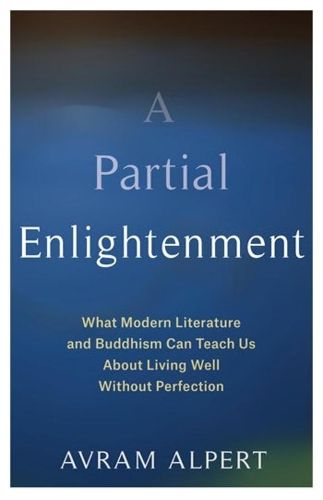Readings Newsletter
Become a Readings Member to make your shopping experience even easier.
Sign in or sign up for free!
You’re not far away from qualifying for FREE standard shipping within Australia
You’ve qualified for FREE standard shipping within Australia
The cart is loading…






In many ways, Buddhism has become the global religion of the modern world. For its contemporary followers, the ideal of enlightenment promises inner peace and worldly harmony. And whereas other philosophies feel abstract and disembodied, Buddhism offers meditation as a means to realize this ideal. If we could all be as enlightened as Buddhists, some imagine, we could live in a much better world. For some time now, however, this beatific image of Buddhism has been under attack. Scholars and practitioners have criticized it as a Western fantasy that has nothing to do with the actual experiences of Buddhists.
Avram Alpert combines personal experience and readings of modern novels to offer another way to understand modern Buddhism. He argues that it represents a rich resource not for attaining perfection but rather for finding meaning and purpose in a chaotic world. Finding unexpected affinities across world literature-Rudyard Kipling in colonial India, Yukio Mishima in postwar Japan, Bessie Head escaping apartheid South Africa-as well as in his own experiences living with Tibetan exiles, Alpert shows how these stories illuminate a world in which suffering is inevitable and total enlightenment is impossible. Yet they also give us access to partial enlightenments: powerful insights that become available when we come to terms with imperfection and stop looking for wholeness. A Partial Enlightenment reveals the moments of personal and social transformation that the inventions of modern Buddhism help make possible.
$9.00 standard shipping within Australia
FREE standard shipping within Australia for orders over $100.00
Express & International shipping calculated at checkout
In many ways, Buddhism has become the global religion of the modern world. For its contemporary followers, the ideal of enlightenment promises inner peace and worldly harmony. And whereas other philosophies feel abstract and disembodied, Buddhism offers meditation as a means to realize this ideal. If we could all be as enlightened as Buddhists, some imagine, we could live in a much better world. For some time now, however, this beatific image of Buddhism has been under attack. Scholars and practitioners have criticized it as a Western fantasy that has nothing to do with the actual experiences of Buddhists.
Avram Alpert combines personal experience and readings of modern novels to offer another way to understand modern Buddhism. He argues that it represents a rich resource not for attaining perfection but rather for finding meaning and purpose in a chaotic world. Finding unexpected affinities across world literature-Rudyard Kipling in colonial India, Yukio Mishima in postwar Japan, Bessie Head escaping apartheid South Africa-as well as in his own experiences living with Tibetan exiles, Alpert shows how these stories illuminate a world in which suffering is inevitable and total enlightenment is impossible. Yet they also give us access to partial enlightenments: powerful insights that become available when we come to terms with imperfection and stop looking for wholeness. A Partial Enlightenment reveals the moments of personal and social transformation that the inventions of modern Buddhism help make possible.